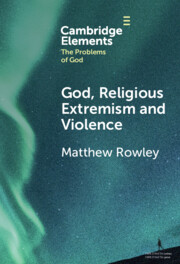Element contents
God, Religious Extremism and Violence
Published online by Cambridge University Press: 22 February 2024
Summary
- Type
- Element
- Information
- Series: Elements in the Problems of GodOnline ISBN: 9781009272315Publisher: Cambridge University PressPrint publication: 21 March 2024



